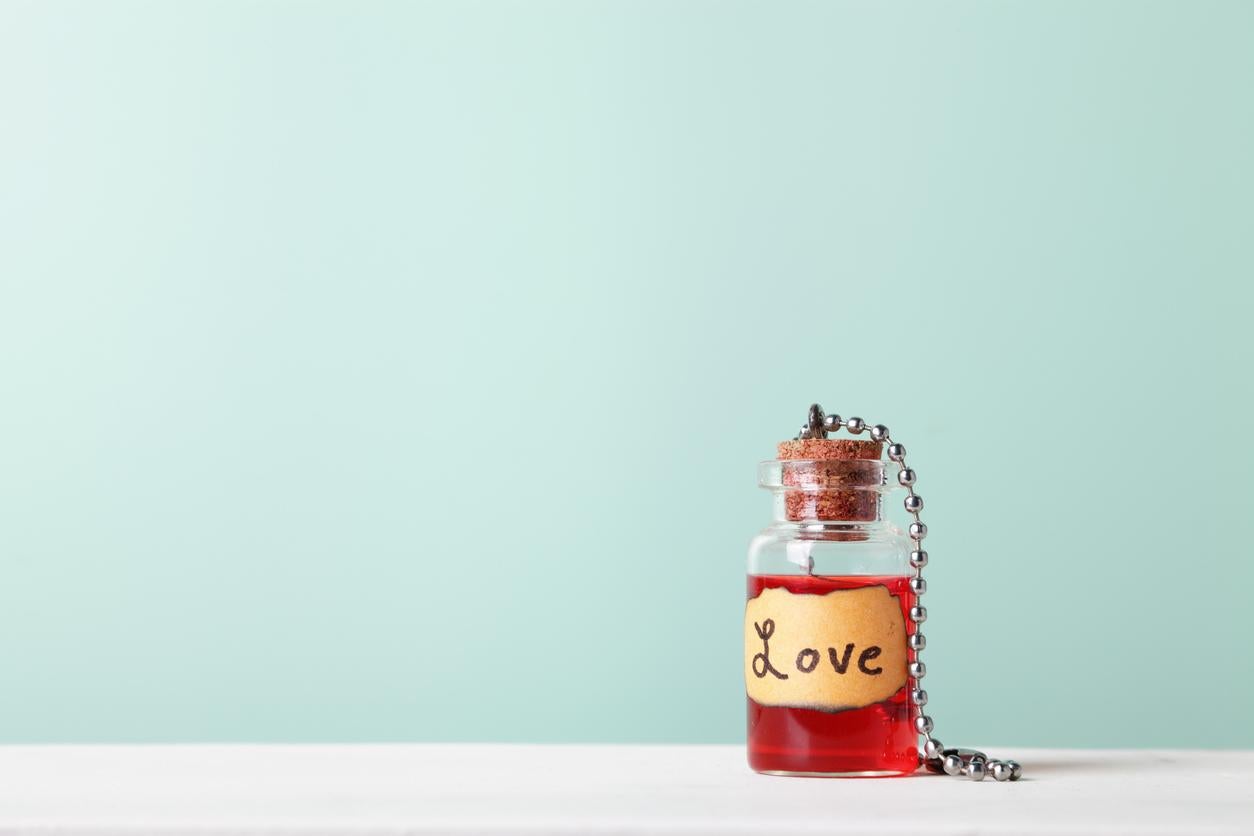Love potions could exist within ten years, scientist claims
But would you want to trick yourself - or someone else - into falling in love?

Your support helps us to tell the story
From reproductive rights to climate change to Big Tech, The Independent is on the ground when the story is developing. Whether it's investigating the financials of Elon Musk's pro-Trump PAC or producing our latest documentary, 'The A Word', which shines a light on the American women fighting for reproductive rights, we know how important it is to parse out the facts from the messaging.
At such a critical moment in US history, we need reporters on the ground. Your donation allows us to keep sending journalists to speak to both sides of the story.
The Independent is trusted by Americans across the entire political spectrum. And unlike many other quality news outlets, we choose not to lock Americans out of our reporting and analysis with paywalls. We believe quality journalism should be available to everyone, paid for by those who can afford it.
Your support makes all the difference.The concept of love potions has long been appealing, if somewhat dangerous. But surely there’s no real way you could consume something that would make you fall in love with someone?
According to Dr. Anders Sandberg of the University of Oxford, love potions could soon be a reality.
As a senior research fellow and trained computational neuroscientist, it’s likely Dr Sandberg knows what he’s talking about too.
Sandberg points out that one of the main reasons humans fall in love is that our babies can’t look after themselves - various animals, in contrast, are much more capable of finding food and being generally self-sufficient from a young age.
“We humans have really hopeless babies, unlike baby horses, who can walk a few hours after getting born,” Sandberg told Broadly.
“So from an evolutionary point of view, we need to make sure parents stay together to give their offspring the best chance of survival. That's where pair-bonding systems come into play.”
When you fall in love with someone, the effect on your brain is unique - oxytocin and vasopressin are released by activating the brain’s dopamine system.
“The thing that really creates a bond together is the dopamine system,” Sandberg explains. “Many of the symptoms are similar to taking a stimulant effect. You have a dopamine release in your frontal lobe, and this causes you to recognize that this is someone who you should be around, who you should feel close to.”
And the reason you miss your partner - and specifically their smell - when separated is because your body releases corticotropin-releasing hormone (CPH) when they’re away.
Sandberg believes a real love potion could soon exist by creating a concoction of oxytocin, vasopressin and CPH. But it’s not going to be easy to do right and scientists don’t yet know how it could work:
“A good love drug would need to affect the right part of the brain by stimulating these systems,” Sandberg explains. “We don't have any proper love drugs yet.”
But science is developing at a quick rate and we know a lot more about how our brains work than they used to.
“We're already much better at understanding brains and how to model brain circuitry than we used to be and within ten years I would be very surprised if we didn't know how to modulate this problem,” Sandberg says.
Give scientists a few more years to get the love potions on the shelves, and before you know it you could be able to take a drug to make yourself fall in love with someone. Whether people will actually want to do that is less clear.
And Sandberg admits there could be problems:
“The classic love potion, which makes you fall in love with someone just because you drank the potion, is certainly problematic,” he says. “From an ethics point of view, if love potions like this existed, they'd really be quite horrifying date rape drugs, in essence.”
But he believes the drugs could be used to strengthen existing relationships.
“When you're already in love with someone, emotions can change over time,” he says. “What if there was a way of topping up that love that might be starting to fade?”
Would you take the potion?
Join our commenting forum
Join thought-provoking conversations, follow other Independent readers and see their replies
Comments